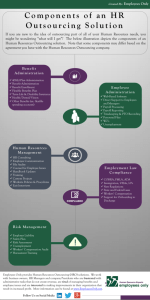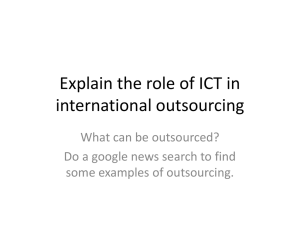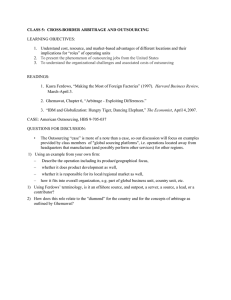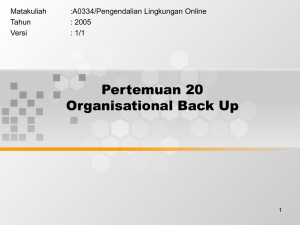Outsourcing and the Associated Export of Intellectual Property
advertisement
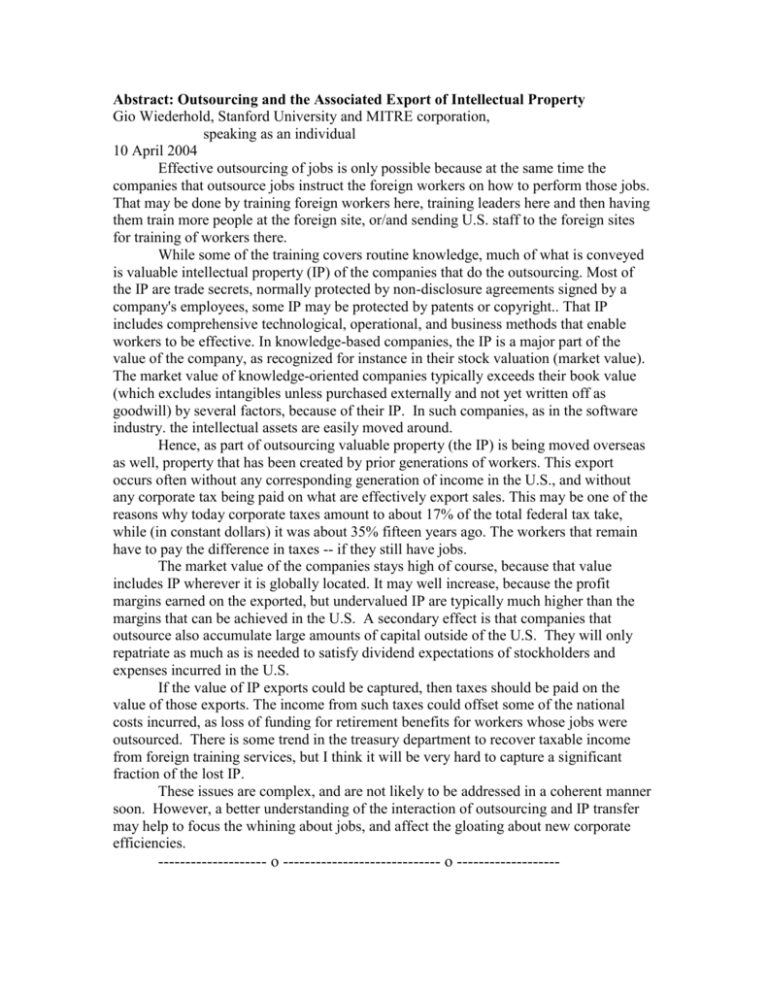
Abstract: Outsourcing and the Associated Export of Intellectual Property Gio Wiederhold, Stanford University and MITRE corporation, speaking as an individual 10 April 2004 Effective outsourcing of jobs is only possible because at the same time the companies that outsource jobs instruct the foreign workers on how to perform those jobs. That may be done by training foreign workers here, training leaders here and then having them train more people at the foreign site, or/and sending U.S. staff to the foreign sites for training of workers there. While some of the training covers routine knowledge, much of what is conveyed is valuable intellectual property (IP) of the companies that do the outsourcing. Most of the IP are trade secrets, normally protected by non-disclosure agreements signed by a company's employees, some IP may be protected by patents or copyright.. That IP includes comprehensive technological, operational, and business methods that enable workers to be effective. In knowledge-based companies, the IP is a major part of the value of the company, as recognized for instance in their stock valuation (market value). The market value of knowledge-oriented companies typically exceeds their book value (which excludes intangibles unless purchased externally and not yet written off as goodwill) by several factors, because of their IP. In such companies, as in the software industry. the intellectual assets are easily moved around. Hence, as part of outsourcing valuable property (the IP) is being moved overseas as well, property that has been created by prior generations of workers. This export occurs often without any corresponding generation of income in the U.S., and without any corporate tax being paid on what are effectively export sales. This may be one of the reasons why today corporate taxes amount to about 17% of the total federal tax take, while (in constant dollars) it was about 35% fifteen years ago. The workers that remain have to pay the difference in taxes -- if they still have jobs. The market value of the companies stays high of course, because that value includes IP wherever it is globally located. It may well increase, because the profit margins earned on the exported, but undervalued IP are typically much higher than the margins that can be achieved in the U.S. A secondary effect is that companies that outsource also accumulate large amounts of capital outside of the U.S. They will only repatriate as much as is needed to satisfy dividend expectations of stockholders and expenses incurred in the U.S. If the value of IP exports could be captured, then taxes should be paid on the value of those exports. The income from such taxes could offset some of the national costs incurred, as loss of funding for retirement benefits for workers whose jobs were outsourced. There is some trend in the treasury department to recover taxable income from foreign training services, but I think it will be very hard to capture a significant fraction of the lost IP. These issues are complex, and are not likely to be addressed in a coherent manner soon. However, a better understanding of the interaction of outsourcing and IP transfer may help to focus the whining about jobs, and affect the gloating about new corporate efficiencies. -------------------- o ----------------------------- o -------------------


